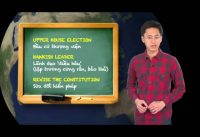Phương pháp học tiếng Anh hiệu quả, nhanh chóng: Các chương trình học tiếng Anh của Ban Việt ngữ VOA (VOA Learning English for Vietnamese) có thể giúp các bạn cải tiến kỹ năng nghe, hiểu rõ cấu trúc và ngữ pháp, và sử dụng Anh ngữ một cách chính xác.
Luyện nghe nói tiếng Anh qua video: Chương trình học tiếng Anh của VOA: Special English Technology Report. Xin hãy vào http://www.voatiengviet.com/section/hoc-tieng-anh/2693.html để xem các bài kế tiếp.
From VOA Learning English, this is the Agriculture Report. The United States Congress has been debating a new Farm Bill. This is a huge five-year plan that includes support programs for American farmers. Government payments make up eight percent of the income of farmers growing such major crops as maize, wheat, soybeans, cotton and peanuts. That eight percent is one of the lowest levels of support among developed countries. The Organization for Economic Cooperation and Development says the average among its members is 20 percent. One reason for the low payments is high global crop prices. The price supports, or subsidies, that pay farmers when prices are low have not been used very much recently.
Grain prices are high. Farmers have earned record or near-record profits in the past few years. But they still receive about $5 billion every year in what are called direct payments. These payments go to farmers whether crop prices are high or low. Farmers do not even have to grow a crop to get direct payments. Now, Congress wants to cut between $20 and $40 billion from farm subsidies. Even the largest farmers’ group, the American Farm Bureau Federation, expects that direct payments will soon end. Mary Kay Thatcher is the chief lobbyist for the group. She says the payments are hard to justify politically. But there are proposals to increase subsidies once crop prices go down again. One version would let farmers receive payments with higher market prices. Another would protect a farmer’s total income when prices fall. David Orden is an economist with the International Food Policy Institute. He says both versions would anger farmers in other countries.

